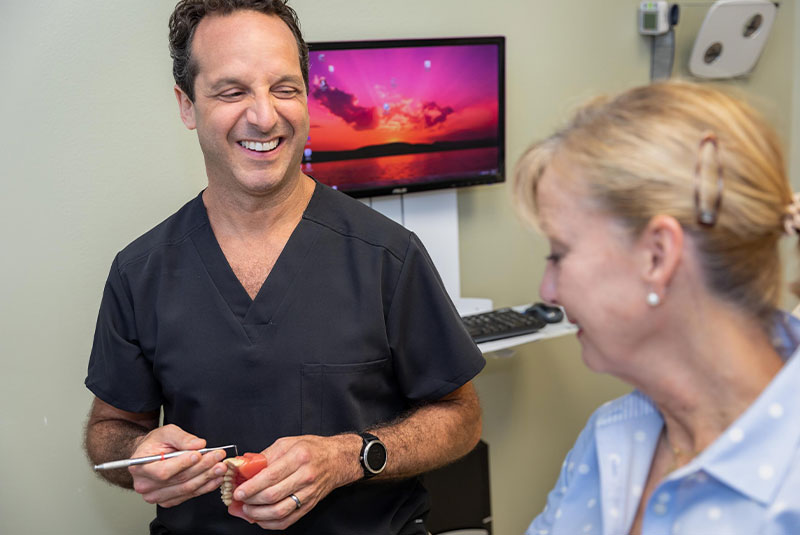ABOUT US - HOUSTON, TX
Why Seeing A Specialist Makes A Difference
At Dr. Friedberg & Associates, we believe that seeing a specialist matters—especially when it comes to your oral health. As a trusted periodontist in Houston, Dr. Friedberg offers the advanced training and personalized care patients need when facing gum disease, dental implants, or complex procedures. Moreover, our team focuses exclusively on periodontics, ensuring each patient receives the highest level of care. Because of this, we’re able to provide treatment plans that are both precise and effective. That’s why patients across Houston continue to trust us with their smiles.
Request your consultation today.
Our team of dental experts is always happy to help!

About Us
What Is A Periodontist?
When you need advanced periodontal or dental work performed, you should never settle for anyone less than an expert. In the dental field, a periodontist is a doctor who has committed to three extra years of training and education to better understand, diagnose, and treat periodontal conditions. In fact, periodontists like Dr. Robert Friedberg specialize in the prevention, treatment, and diagnosis of periodontal (gum) disease and the placement of dental implants to replace missing teeth. As a result, their training ensures greater accuracy, safety, and long-term success. Just as you wouldn’t trust anyone less than a cardiologist for heart surgery, you should trust a specialist when it comes to taking care of your gums or implants—someone like Dr. Friedberg & Associates.
Advantages Of Choosing A Periodontist
-
Additional three years of fellowship training and education
-
Specialist in gum disease
-
Advanced care for both hard and soft tissues
-
Specialist in dental implants
-
Investment in advanced technology
-
State-Of-The-Art Facility
Our Advanced Technologies
Procedures Our Expertise And Technology Benefit
- All-on-4® dental implants
- LANAP® laser gum disease treatment
- Implant supported dentures
A Leader In The Field
Dr. Robert Friedberg has spent over a decade delivering exceptional periodontal care in Houston, TX. He focuses on gum health, dental implants, and long-term oral health.
He completed his three-year residency in Periodontics at the University of Connecticut School of Dental Medicine. There, he also earned his Doctor of Dental Medicine degree.
In addition, Dr. Friedberg continually invests in the latest dental technology. As a result, patients benefit from more precise, efficient, and comfortable care.
His work has earned recognition from the American Academy of Periodontology and the International College of Dentists, among others. These honors reflect his expertise and commitment.
If you’re looking for a trusted periodontist in Houston, you’re in the right place. We combine expert treatment with gentle care—because your smile deserves both.
